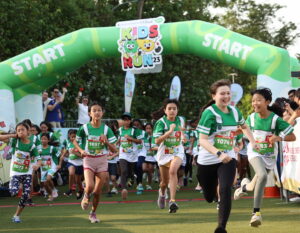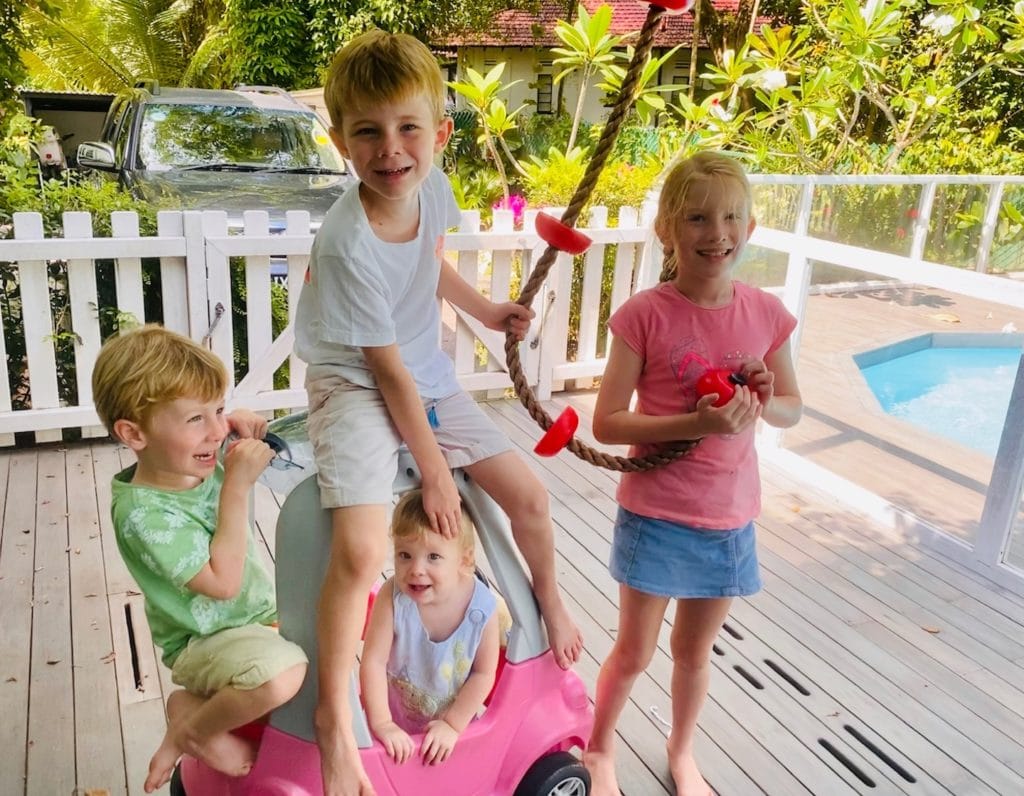

A Counsellor and mama of four kids, one of whom has autism, shares an open letter to the siblings of an autistic child
Last year Singapore-based British mama Pippa Gresham wrote an open letter to her eldest daughter who has autism. Here she turns her attention to her other three children, who experience life through a very different lens as siblings to an autistic child.
Every family is unique and has its own story to tell. However, this is your family’s story and we hope that it will be a tale of great strength, patience and resilience. Realistically, it will likely also harbour chapters of anger, resentment, and loneliness. We know that this was not your choice; you did not put your hand up and volunteer for this but it is undeniably an integral part of your blueprint growing up. Which – who knows? – may make all the difference.
We, as your parents, may satisfactorily provide answers to all your questions, but we hope you never stop asking, never stop being curious because your interest in your family’s dynamic will cement your role and deepen your bonds. Your sister/brother may need, or continue to need, care and attention that separates us, whilst we attend specialist appointments, therapies and you watch us disappear down rabbit-holes of research and latest assessments: this is really hard.
It may be lonely, and we see your impatience and frustration show in your door slamming, in your eye-rolls and in your tears. However, there is an unavoidable plot to our narrative which we cannot change. Sometimes accepting the storyline for what it is with an open and compassionate mind will be easy and comfortable and without fear, but other times you may resent missing out on exciting things, begrudge the attention you feel is lacking, or you may even have to endure other people’s judgments or mean jibes. On these days, please be reassured that we do see you even through the cracks in our own hearts and notice the sacrifices you make with our distracted glances. Try to forgive us these times because we are strong but not superhuman; we are resilient but not Teflon, and by day we forge on but by night we shed tears for you, too.
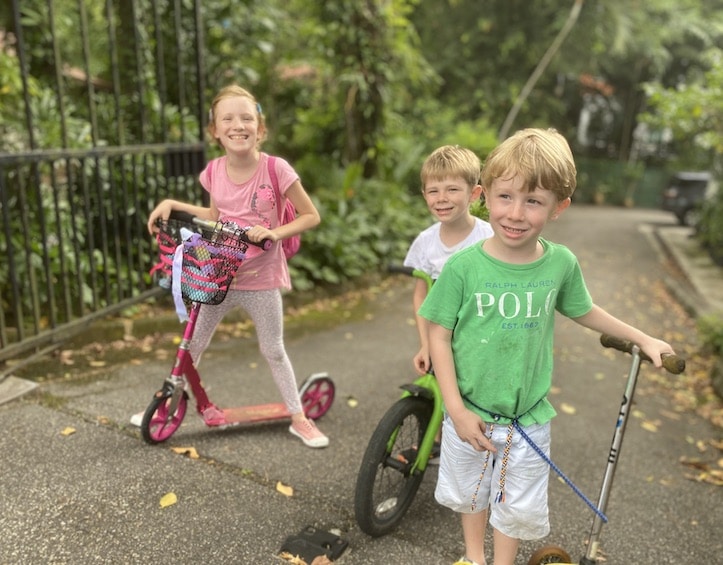

We do not undervalue the power you have as a sibling. In fact, the relationship you have with your brother or sister with autism is likely the longest relationship you will have, and who knows what responsibility and part you may have to play in the second act? Do not underestimate the impact of your smiles, strokes, laughter, and giggles you share because you are the hero of their story! You are their teacher, their playmate, their touch-point in a world which will likely be scary and sometimes strange. They may respond, perhaps even experiment, far more with you as their safe and comfortable chaperone, watching and learning as you navigate your own chronicles. You learnt the lines for your role far earlier than we did, as your parents, and we watch you with admiration as you bravely stand up against the baddies and scoundrels who threaten the precious and vulnerable and advocate the moral of our story: be kind.
So, when we as parents are late to your class performance, or have forgotten to put your PE kit in your bag for the second time, or you’ve missed out on a social engagement because we have to stay at home, remember we are here too in the Land of Misses. But our greatest win will always be watching you with loving admiration go out into the world and take charge of the ending of your story, not just for your sibling but for all of us.
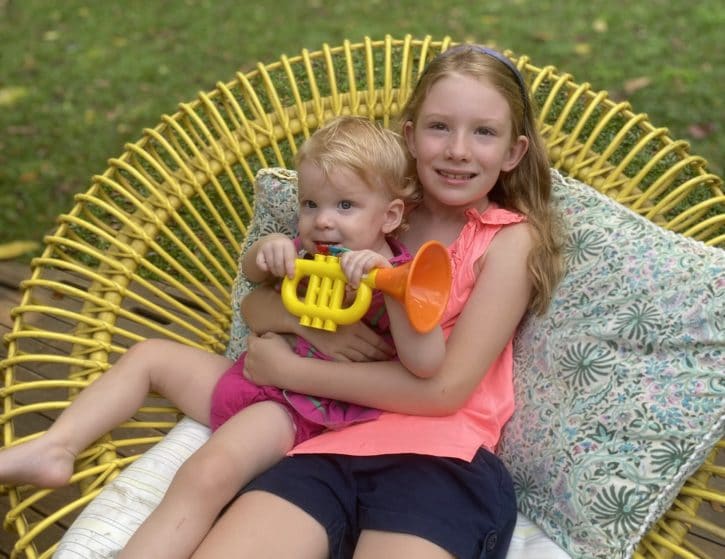

How to support siblings of an autistic child
There is a cold harsh truth in admitting that a disability such as Autism can affect siblings as much, maybe even more, than the child who is diagnosed. It makes us uncomfortable to think about it and we might avoid putting the siblings in stressful situations as we are anxious about adding to their emotional burden. Having a sibling with Autism is a lot for a child to process on their own and that is the point — they are not alone, and we should try and avoid letting them feel that they are. Many children with Autism have a delay or deficit in their ability to communicate, which can cause outbursts of screaming, hitting, biting and general dysregulation in their struggle to be heard. However, if this lack of communication is also being mirrored in the wider family’s modus operandi, the atmosphere will likely nose-dive into a pit of isolation, loneliness and resentment. So how do we make it work?
- First and foremost, administer your own oxygen mask, as Jasmine Goh referenced in her book My Unique Child. The reality is that a child is looking to their parent as that point of navigation and will really struggle to orientate themselves if your regulation is out of whack. Look to yourself before helping others.
- Practice Acceptance: My second son was born just at the point when my daughter was being diagnosed, and I took little enjoyment in his first 6 months as I was numb, sad, and scared. I now know that this was mostly grief. Beyond its traditional lumping in with death, this loss, emptiness, and longing for meaning are all akin to the stages of the grief process. David Kessler writes about acceptance in his most recent book Finding Meaning: The Sixth Stage of Grief; only when I was able to knock on the door of acceptance could I start to heal and engage better with all of my children. This takes time and effort and you need to practice it, so do seek that help out if you need it.
- Concentrate on the 3 Cs: Communication, Consolation and Compassion. Most of us may hope beyond hope that things will settle and one day we will be able to ‘make it up to them’. Accepting that day may never come means we may have to concentrate on the little things a bit more:
- Model Communication through Play between siblings. This may be slow and unrequited and is stressful under normal circumstances. It can also breed avoidance, impatience and resentment. The key is not to expect too much but to keep the interactions brief but frequent (perhaps 10-15 mins, twice a day). Role-model the skills or play and praise them equally for their efforts. Ask the sibling for help to come up with some games, choose the story to read or where they want to go for an outing. This gives them autonomy over the process and strengthens their trust in your value for them as a caregiver as well as being a wonderful brother/sister. Communication is not only about talking but about listening! There will always be questions; even if they don’t ask them, they will have them. Depending on the age of the child, rather than bombarding them with technical information, give them space to ask the things that probably you were wondering too, when you first found out about ASD (Autism Spectrum Disorder). You could start by saying “I noticed that while you were playing with your sister, that she started to flap her hands. I am wondering why she likes to do that. Do you want to ask anything about that?” By modelling the curiosity, you are serving them with resources and answers to questions that others may ask them in situations outside the comfort of the home which could potentially be embarrassing or awkward. Remember to thank them for sharing for even the tiniest nugget of information.
- Console rather than ‘fix’ in a non-judgemental space. This is especially relevant if there is big inner-conflict wrangling in your children between love and shame. Phrases such as: “I am seeing in your eyes/clenched fists/tears that you are frustrated/angry/sad etc…”, “I am sorry you are feeling like this…do you want to tell me about it?”, “I am hearing in your voice that you are resentful/bitter/offended…Can I tell you about a time that I felt that way?” Children often love to hear stories about you and with you normalising their experience with your own, it can give them a huge sense of relief that they are not a dreadful person for feeling this way.
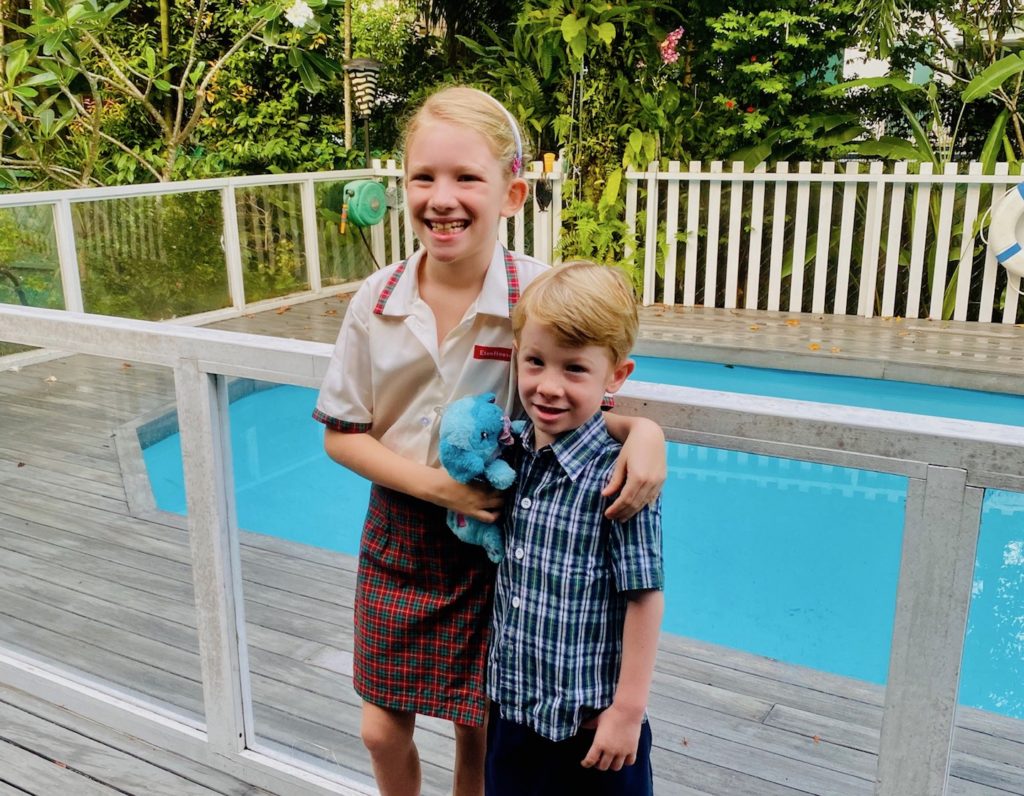

-
- Modelling neutral compassion: Particularly for older siblings, this allows them to make a choice about how they would like to do things differently. We may ask, “This sounds really hard for you and I am wondering whether we could do something to help make you feel better about this…. Can you think of anything?” The valuable lesson is in your honest admission of your limitations to change anything; instead you are curious about their levels of discomfort which invites them to investigate further into themselves. Do not expect them to give an answer right away but by proffering an intention to try or to ask again tomorrow, gives the sibling a sense of stability which scoops them up from their potential free-fall. Re-check in with your children as they grow older about their understanding of the disability and their role and their feelings, and each time will require the same basic listening and validation of their feelings.
- Finally, a big old belly laugh can unite and act as an emollient for the soul! During some of the tougher times and darker hours, levity and humour may seem far from a priority or indeed appropriate, but their powers are two-fold: they bring a lightness and buoyancy to the proceedings whilst teaching child with Autism about the mechanics and layers of comedy. If we take life too seriously and focus on past wrong-doings, failures and the guilt, the harder it will be to be kind to ourselves, forgive ourselves and make ourselves available to others.
My children are all very young still and their level of cognition about their sister’s diagnosis is developing. I have slowly become attuned to the opportunities to discuss things with them along the way, such as why she didn’t speak, why she screamed, why she always put things in her mouth, why she ran in circles, why she now goes to a different school and so on. There is still much to be realised, but in my personal experience as a counsellor, an educator, and a parent of four kids the ultimate success in your ability to help your children, for me, rests on one key question:
“How are you today?”
No one saves us but ourselves. No one can and no one may. We ourselves must walk the path – Buddha.






 View All
View All





 View All
View All





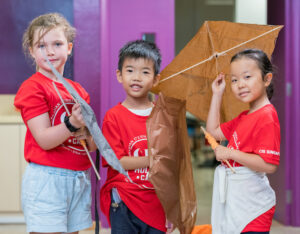


 View All
View All


